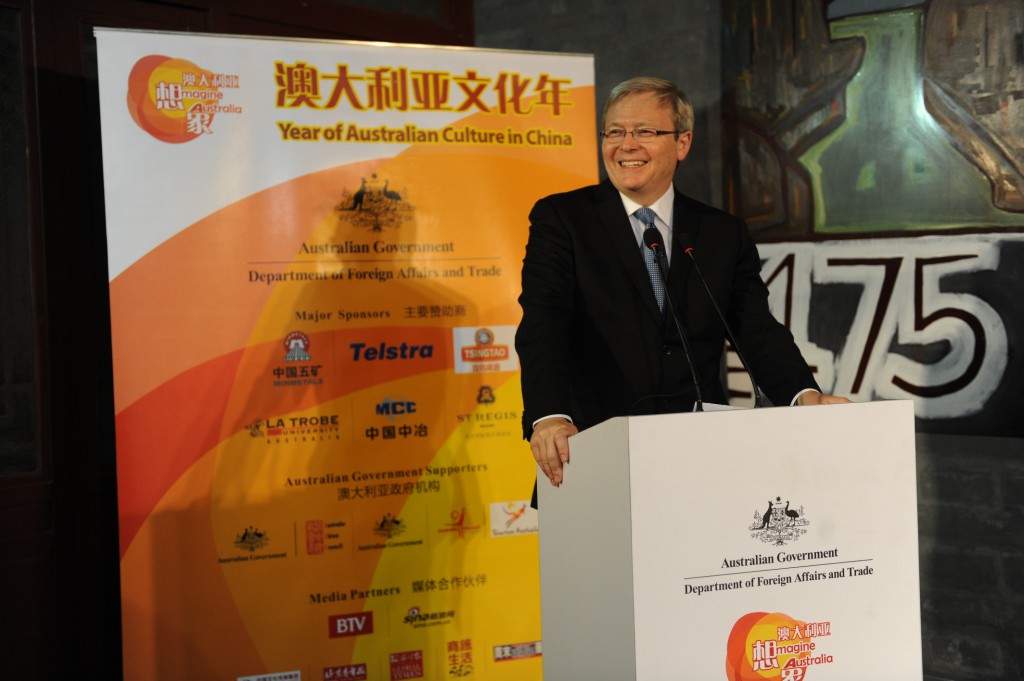 Only five years ago, it was possible to categorise Canberra’s clash over China as setting Oz dragon-slayers against Oz panda-huggers. The differences within Canberra were mild and muted compared with those in Washington, but we did have the makings of a real set of open arguments between hawks and doves. Since then, the questions have kept getting bigger while the sharpness of the language has softened.
Only five years ago, it was possible to categorise Canberra’s clash over China as setting Oz dragon-slayers against Oz panda-huggers. The differences within Canberra were mild and muted compared with those in Washington, but we did have the makings of a real set of open arguments between hawks and doves. Since then, the questions have kept getting bigger while the sharpness of the language has softened.
No longer is it panda-huggers versus dragon-slayers. Today, geopolitical correctness reigns. The Canberra contest has become one of nuance—between panda-prodders and panda-huggers.
A simple explanation—which has much truth—is that as China has become bigger, richer and ever more important to Australia, the language options for the one-time dragon slayers have duly shrunk; more prudent now to be a prodder. The effect hasn’t just been produced by the better part of valour; other factors pull in the same direction. Australia has a rapidly expanding Chinese population that’s starting to carry domestic political heft.
As always in talking about Canberra, personality matters. And looking back five years brings into focus the leader who encapsulated the two poles of the debate in his own being. Kevin Rudd had the fears and force of a dragon-slayer, while also having all the understandings and emotions of a panda-hugger. The hawkish side of the Rudd intellect was on display when he described himself as a ‘brutal realist‘ and told Hillary Clinton the US had to be ready to fight ‘if everything goes wrong’. Bob Carr diarised that Rudd jocularly referred to himself as the ‘original Cold Warrior on these things’.
Those were the settings for Rudd’s 2009 Defence White Paper. One of the advisers on that Paper, Ross Babbage, said Australia needed capabilities that could ‘rip an arm off’ any major Asian power, and that ripper effect would be aimed at the rapid growth in the scale, purpose and intent of the People’s Liberation Army.
Such was the milieu that produced the 2009 Defence White Paper, with the hot breath of the dragon-slayers singeing the sections on China. Five years on, the official language no longer expresses the fears. The seminar-cum-monologue on China and the US that rolls through the Carr diary concluded on the comforting thought that’s now the mantra Australia doesn’t have to choose.
To see the new Canberra consensus, note that the Deputy Secretary who wrote the 2009 White Paper now disowns his handiwork. Mike Pezzullo tells Carr that the key concepts in responding to China’s growth or assertiveness are hedging versus over-hedging versus containment, saying: ‘Take the 2009 Defence White Paper. That was a case of over-hedging’. Even the bloke who wrote it thinks he went too hard. In this calculus, the 2013 White Paper reined in the volume and was plain hedging; plenty of plain hedging likely in next year’s White Paper, too, and watch that language.
When Rudd fell, so did the tone. No longer would Australia attempt Rudd’s difficult goal of being the friend that spoke hard truths. Julia Gillard set out to be the anti-Rudd in many things. Her Asia Century White Paper was created so she could have a big bit of foreign policy with no trace of Kevinism. Being the anti-Rudd got Gillard a long way in Beijing, especially in achieving an annual Australia-China summit.
When Tony Abbott arrived, his dragon slayer instincts pulsed at China’s announcement on November 23 of its new air defence zone. In protesting to Beijing, Abbot scored the trifecta, saying Australia would stand up for its alliance, interests and values.
It was the exuberant canter of a new PM. The reins quickly tightened.
In the big scene-setting speech before his April visit to Northeast Asia, Abbot was almost all hug with just one hint of prod:
It’s hard to overstate the importance and the strength of Australia’s relationship with China. … As liberalisation spreads from the economy into other elements of Chinese life, I am confident that Australia will be a valued friend and strategic partner, as well as a rock-solid-reliable economic partner, to the Chinese people and government.
Yep, these days, those three words—‘as liberalisation spreads’—constitute a prod.
Abbott was channelling Julia when he went the full panda hug at the Boao Forum: ‘Team Australia is here in China to help build the Asian Century’. Team Australia is tracking Team ASEAN in the new geopolitical correctness: private fear expressed only by public prodding.
Graeme Dobell is the ASPI journalist fellow. Image courtesy of Department of Foreign Affairs and Trade.

